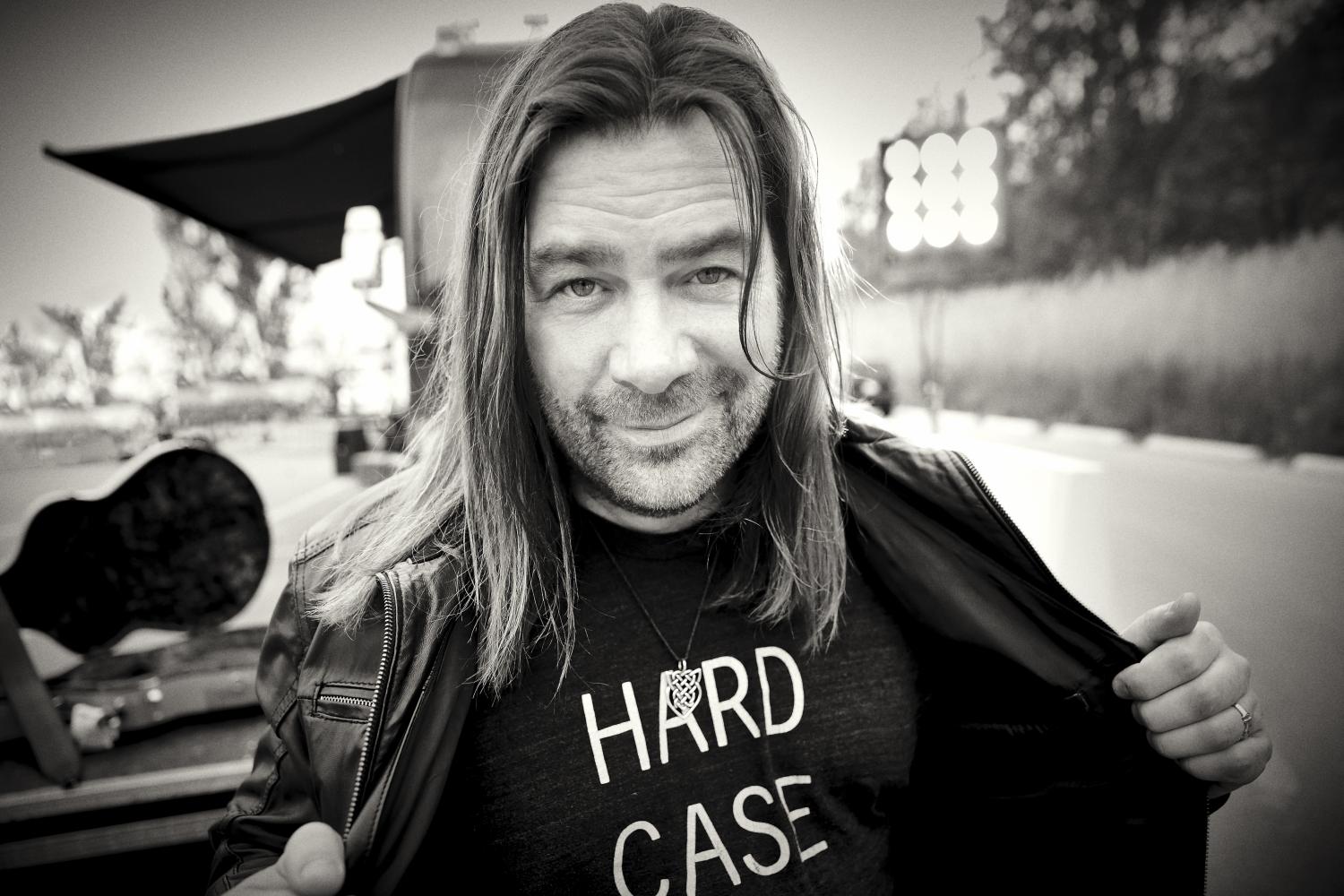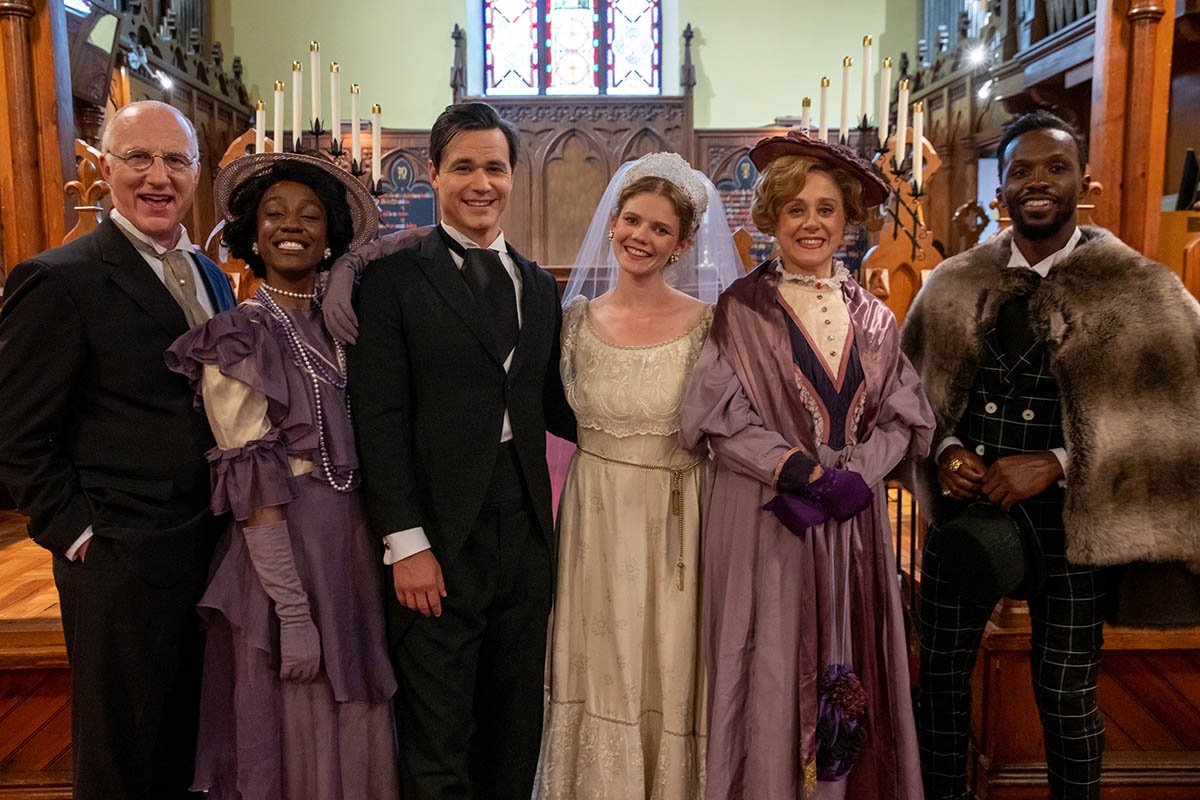
Looking Back, Gazing Ahead — It’s all Beautiful to Alan Doyle
“They came to see you. So you be you and nobody else,” Gord Downie once told Alan Doyle. They are words he’s never forgotten. Words that remain as the one time member of Great Big Sea, Canada’s biggest party band, continues his career as a solo musician.
Once, in what may seem like another lifetime for Doyle, before the hits, the fame and stepping onto stages in front of crowds that roared as loudly as the waves crashing against the rocks of his Newfoundland home, he would be found playing Tragically Hip covers in bars. Between songs and drinks, he’d think of the world off The Rock and a Canada sung of in Downie’s songs.
Now, having seen much of that world many times over, Doyle admits that home looks a little different after every trip.
“That’s the beauty of a life constantly traveling between home and away. You always bring a little bit of one to the other and back again,” he says, offering an example from his recent book A Newfoundlander in Canada: Always Going Somewhere, Always Coming Home about “the long, winding, steep steps that crawl from the ocean up to Cabot Tower.”
He had climbed them hundreds of times and, though challenging, looked upon the St. John's landmark as quite normal. It was after walking the flat expanses of the prairies that these steps now resembled something that could have been part of the Great Wall of China.
While globe-trekking may cast the familiar in different shades and lights, stepping up to the microphone in front of a hometown crowd is a whip-crack snap out of any worldly reverie. Still living among his Newfoundland audience, Doyle can momentarily forget just how unique they are after returning back from the road.
“They don’t come to watch and listen,” the musician says and you can feel a pause of anticipation. If this were a concert the crowd would be finding themselves being slowly wound up, Doyle’s hand locked in the few seconds before he strums his guitar. Waiting…waiting…because “they come to dance and sing!”
Release. Unleash. Repeat.
“You like to bring that vibe with you no matter where you travel,” I observe. You see, I’ve known first hand (and both feet!) what it’s like to be whipped into that fantastic frenzy by Doyle and his music having seen him perform both solo and with Great Big Sea numerous times. “Each show I’ve seen you play you’ve talked about the kitchen party feeling. What do you have to unpack to bring that atmosphere to us in the crowd?”
The fan in me expects to unlock the Pandora’s Box of East Coast musical secrets but, for Doyle, the answer is a simple one. It brings him back to a town of about 960 people on the eastern shore of the Avalon Peninsula. One of North America’s oldest European settlements, Petty Harbour was once a town flourishing in fish. 1992’s moratorium on the cod saw a sad end to much of that leaving the place Doyle called home reliant less on its fisher folk and more on the tourists passing through to hike or perhaps catch a glimpse of a whale or two.
But there was also the music and be they high times or be they low, the Doyle clan in Petty Harbour could throw one hell of a kitchen party. What Alan brings to the stage with him each performance is a generous helping of that once served up by his uncles.
“They just asked everyone to sing with them and I do the same thing,” Doyle tells me. “It worked in the kitchen in Petty Harbour and somehow works in hockey rinks and theatres and festivals.”
Though Wikipedia (and a tour guide or two) may tell you that the only “notable resident” of Petty Harbour is one Alan Doyle, the musician, I’m sure, would add many a’more to that list in terms of influence on his life. It is lines from the song “Petty Harbour Bait Skiff”, however, that make me think of the other men who’d make up much of Doyle’s life in song and the fork in the road where they parted four years ago.
“We bid adieu unto our friends and those we held most dear”
At the end of one of their biggest tours, one that celebrated their 20 years together, the ship Great Big Sea was rocked by a squall before reaching their final port. Séan McCann, after years of battling alcohol addiction, was taking his first steps into a life of sobriety. Those steps, however, would have to be taken away from the band.
“My news was accepted and received in silence and we did not speak about it on the bus during the entire tour. In fact, we didn’t speak at all. It was the hardest time of my recovery and I am really glad it’s over,” McCann would tell me in 2016 three years removed from his choice to leave Great Big Sea and a year after moving away from Newfoundland to start a new life with his family in Ontario.
“What was going through your mind?” I asked Doyle. This was, after all, the end of a journey that had yielded some of the best times of his life. He wanted to see the world. He did. He wanted to share his songs. He had. To thousands! He loved the music. He loved the crowds. He loved every single voice that sang along. And now…
“We had built this ship that was inevitably heading back to the dock and we were not sure what to do about it,” Doyle remembers of those strange days at the start of the ending. “We were all stressed and worried and scared about what the future held. I chose to focus on the gigs at hand. We had thousands and thousands of tickets sold to people when Sean announced he was leaving and I did not want any conflict amongst us affecting a single show. I did not think it was fair to the fans to give them anything but our best, so I focused on that and never took my eye off it till the last song was sung.”
The last song was “Ordinary Day” but, of course, it was anything but. Though attempting to rebuild the ship without one of the crew at the helm, Doyle and the other members of Great Big Sea would eventually drop anchor and set out on their own. Still, he says, the boat hasn’t sunk. It’s still there filled with a treasure trove of songs that aren’t going anywhere.
“What would you say changed for you when GBS retired?” I ask, surprised by the reply that Doyle isn’t quite sure the band is fully retired. He’d rather consider it a lengthy hiatus.
“The biggest change was that I left a ship with three Captains and went to a ship with one,” Doyle tells me. “I spent the better part of the previous decade having two of the smartest and most worldly people help make every decision. It felt shocking lonely when I first had to make a decision on my own.”
Lonely, perhaps, but Doyle wasn’t thinking about mooring his own vessel. Shortly after Great Big Sea disbanded, he released his first book aptly titled “Where I Belong”. At a point where the future looked uncertain, he turned to the past to tell stories of his life growing up in Newfoundland. A second solo album followed and a new “anything goes” approach to his song writing now that he was untethered to the juggernaut that was the band.
“That’s one of the fun things about being a solo artist. You are not constantly trying to write and create songs to meet a specific set of skills,” Doyle explains. “It would be silly to do a GBS album and not have anywhere on there for the four or five of us to sing in harmony, or to have no accordion driven songs, etc. We were all constantly trying to accommodate those things. As a solo fella, you just write the best songs you can and worry about how to replicate them later.”
It’s also allowed for some interesting collaborations.
Metallica and Mötley Crüe aren’t the first places you go when thinking of music from the East Coast of Canada. At this point in his career, Doyle was thinking about taking a few more risks when turning to Payola$ guitarist and legendary producer Bob Rock.
“I wanted to do a band album live off the floor and I knew Bob still loves to do albums like that. I thought of how to get to him and recalled he had worked a lot with Jann Arden. I asked Jann about him and she said, “Well, I’ll be speaking with Bob tomorrow and I’ll get him to get in touch with you right away.” The next day I was driving up Torbay Road and my phone buzzed in the seat next to me. The call display read BOB ROCK. I pulled over in the Irving parking lot and said, “Hello, this is Alan." The voice on the other end said, "Hi Alan, this is Bob Rock. Jann Arden asked me to call you and I’m not about to piss off Jann Arden."
Good advice on any occasion.
The pairing would see the release of Doyle’s new album “A Week at the Warehouse”, one that was recorded live off the floor for a raw feeling more akin to his live shows.
“Bob is such a fan of a good song and his energy and excitement about creating a new one is infectious,” he says of their time recording together. “Seeing a man of his experience and background with a grin on his face is nothing short of inspirational. Me and all the band wanted to make him grin like that every evening.”
Though always crafting perfect party songs, Doyle still finds himself question the ingredients tossed into the pot before it all comes to a boil.
“I’ve probably gotten it wrong as often as I’ve gotten it right. I’m never quite sure what will work, so I write a ton and hope for the best. I often find myself puzzling, “Really? Whisky Whisky is the most popular song on the album…? Really? I thought for sure it would be…"
Though the last few years have seen a few unplanned for twists and turns in his life, Doyle, guitar at the ready, continues to live the life he dreamed up as that boy singing along with his uncles in Petty Harbour.
“Music is my life and passion. I’ve never once considered a life outside of music,” he says. “Playing a concert of meaningful songs to a room or field full of people easily remains my favourite thing in the world.”
Doyle returns to the National Arts Centre Sunday, February 25th. Tickets are on sale now.












